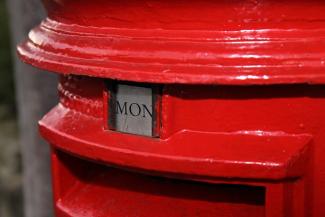How to Sue Someone for Slander
A person's reputation, (or the reputation of their business) is valuable and important. When someone says something that harms the reputation of you or your business, it can have serious consequences. There are two types of defamation in UK law, slander (spoken) and libel (written).
What is Slander?
Slander is a type of defamation of character, and is something untrue and damaging which is said about you or your business by somebody else, but it can also include gestures. The slander must be said to someone other than you.
A statement is considered to be slanderous if it:
- exposes you to contempt, ridicule or hatred by others;
- causes you to be shunned or avoided by other people; or
- makes people think less of you as a result.
What are the Time Limits for a Slander Claim?
If you want to bring a claim against someone for slandering you, it is important that you act very quickly indeed. This is because the time limits are tight, and you have only one year from the date of the publication of the slanderous statement to start a claim in court. It is very unusual for this time limit to be extended, but it is possible in certain circumstances.
In slander cases, another reason for acting quickly is because you will need to take witness evidence as quickly as possible, to record the untrue statements which have been made about you. The memory of witnesses can fade, and it is likely that evidence would be treated as more reliable, if witness statements are taken straight away.
Which Courts Deal with Slander Claims?
Claims for slander have to be started in the High Court, as no other courts have jurisdiction to deal with slander claims.
Slander claims can be issued online with the High Court, but before that, you are expected to engage in correspondence with your opponent, using the Pre Action Protocol for Media and Communications Claims. This Protocol sets out the information that you have to give to your opponent about the case, and also the response that your opponent has to give to you.
How do I Start a Claim for Slander?
Because of the requirements of the Protocol for Media and Communications Claims, you should start off your slander case by sending a letter of claim which complies with the Protocol to your opponent, and then only if the matter cannot be resolved between you, should you start court proceedings.
If you are very close to the end of the one year limitation period, you will need to start court proceedings even if you have not yet been through the Protocol procedure, to ensure that you preserve your right to bring a claim. You should take legal advice as quickly as possible, if you think you are near the end of the limitation period.
What Evidence is Required for Slander Cases?
You will need witness evidence from witnesses to the slander, if you want to bring a claim. It can be difficult to prove that you have been slandered otherwise, as the untrue statement about you has not been recorded in a permanent form. It is therefore important for you or your lawyer to speak to witnesses who heard the untrue statements about you as quickly as possible and to take written statements from them, confirming what was said about you.
It can be difficult to find witnesses to help you with slander cases, particularly if they have believed the untrue statement about you, as this might mean they are less willing to help. However, we can help with taking statements from your witnesses, if necessary.
How do you Prove Financial Loss in Slander Cases?
The law of slander says that in most cases, you have to prove that you have suffered actual financial loss as a result of the slander, as well as serious harm to your reputation. This is different from libel claims, where you are only required to prove that you have suffered serious harm to your reputation.
Examples of actual financial loss would be:
- losing your job and having to claim benefits;
- failing to get a promotion;
- not being able to use facilities that you have paid for such as a gym or club;
- having to find alternative more expensive accommodation; and
- losing your business, if you are self employed.
What Remedies are Available in Slander Cases?
If someone has slandered you, the main remedy you can claim is damages. The damages are designed to compensate you for the harm which has been caused to your reputation by the slander. There are however other remedies that can also be sought from a defendant.
If you settle the claim with the defendant, you can ask them to provide you with a public apology for what they have said about you, as well as paying your damages and costs. They may also give you an undertaking not to repeat the slanderous statements again and if they breach that undertaking, they can be arrested and sent to prison.
If you issue proceedings, the court can order your opponent to pay damages to you, and impose an injunction. This has the same effect as an undertaking, and if your opponent breaches an injunction which has been imposed by the court, they could be sent to prison if they repeat the slander again in future.
Who Pays Costs if I win my Slander Claim?
If you take your claim to court and win your slander trial, the usual rule is that your opponent will be ordered to pay most of your costs, as well as having to pay you damages.
However, it is important to be aware that the defendant will not have to pay all of your costs. There will usually be a shortfall (typically of 20 to 25% of the actual costs you have incurred) and you will remain responsible for paying this shortfall to your solicitors.
If you are able to settle your slander claim without going to court, the costs will be a matter for negotiation between the parties.
What do I do Next if I Have Been Slandered?
It is important that you establish with the help of an expert at an early stage, whether or not you have a valid claim for slander. If you start a claim in the wrong court, if you do not use the Protocol procedure properly, or if you do not plead your claim properly, you can be ordered to pay costs to your opponent and so you need to speak to an expert lawyer at the outset.
At Samuels Solicitors, we specialise in helping clients from all over England and Wales with their slander claims. We try wherever possible to make sure that our clients can have access to justice and manage our legal fees, by offering flexible funding options, which can include no win no fee (conditional fee) arrangements for very strong cases. We can assess how strong some claims are at the very outset, but in other cases, we need to carry out this assessment at a later stage of the proceedings.
Contact us today for a free initial discussion about how we can help.
Latest How to Sue Someone for Slander News
-
Cease and desist letters can be useful tools at the outset of a matter. Could it be appropriate for your case?
-
If someone has been spreading lies about you, what legal action can you to take?
-
A Sainsbury's security guard called a shopper a thief, which has led to slander proceedings being issued.
-
The government plans to change the rules for conditional fee agreements for defamation claims. What will this mean for access to justice?
-
Samuels Solicitors have successfully recovered significant damages for a client wrongly accused of being a paedophile. Read on to find out more.








